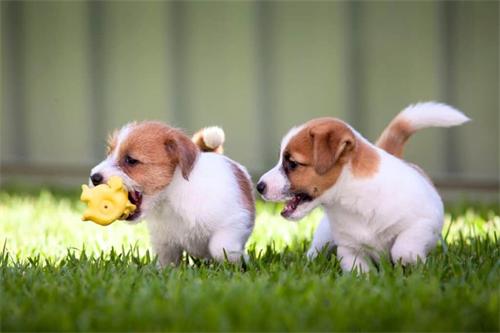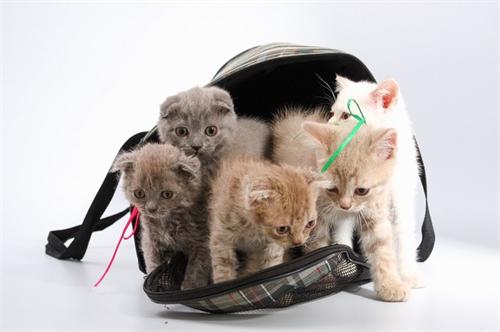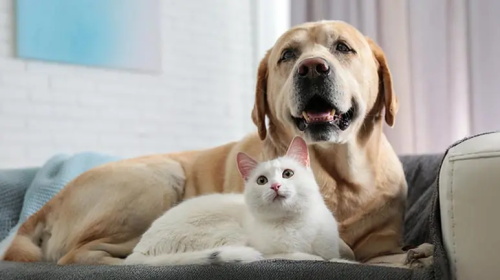The Benefits of Socialization Programs for Puppies and Kittens

Bringing a new puppy or kitten into your home is one of life’s purest joys. Their boundless energy, curiosity, and affection can instantly brighten your days. Yet, those early weeks of your pet’s life are not just adorable — they are foundational. What your puppy or kitten experiences during this time can shape their entire future, influencing how they respond to people, environments, and even stress.
One of the most effective ways to help young pets grow into confident, well-behaved adults is through structured socialization programs. These carefully designed experiences allow puppies and kittens to explore the world safely, learning that new sights, sounds, people, and other animals are nothing to fear.
Let’s explore why early socialization matters, what benefits it brings, and how owners and communities can make the most of this critical developmental stage.
Understanding Socialization
Socialization refers to the process of positively exposing young animals to various experiences — people, animals, textures, noises, smells, and environments. It helps them learn how to navigate the world with confidence instead of fear.
For puppies, the “critical socialization window” typically spans from about 3 to 14 weeks of age. For kittens, it occurs even earlier — roughly 2 to 9 weeks old. During these sensitive weeks, their brains are developing rapidly, forming associations that can last a lifetime.
If they experience the world in safe, rewarding ways during this time, they’re likely to become friendly, curious, and emotionally stable adults. If they miss out, however, fear-based reactions can take hold — leading to skittishness, aggression, or difficulty adjusting to new environments.
The Critical Period: Why Timing Is Everything
Imagine a blank canvas. That’s what a young puppy or kitten’s mind looks like. Every sound, sight, or touch paints a stroke on that canvas. Positive experiences — meeting kind people, playing with other animals, hearing new sounds — create bright, balanced images. Negative or absent experiences, on the other hand, can leave dark gaps of uncertainty.
This is why timing matters. Once the socialization window closes, pets can still learn and adapt, but the process becomes slower and more challenging. Early exposure to a variety of safe, positive situations allows them to build resilience and trust before fear has a chance to set in.
The Transformative Benefits of Socialization Programs
1. Reducing Fear and Anxiety
One of the most important outcomes of socialization is a calmer, more confident pet.
When young animals are gradually introduced to new people, sounds, and environments, they learn that novelty isn’t something to panic about. For example, a puppy who experiences car rides, vacuum cleaners, and friendly strangers early on will likely handle those things with ease later.
Without proper socialization, however, pets may grow up anxious — hiding from visitors, trembling during thunderstorms, or reacting aggressively to unfamiliar animals. Preventing these fears early is far easier (and kinder) than trying to correct them later.
2. Preventing Aggression
Many cases of pet aggression stem from fear or misunderstanding. A dog who’s never met other dogs may interpret normal play as a threat; a cat who’s never been handled gently may lash out during grooming.
Socialization programs teach communication. Puppies learn bite inhibition and body language through play with other dogs, while kittens discover how to interact without using their claws. These early lessons lay the foundation for polite, non-aggressive behavior throughout adulthood.
3. Enhancing Adaptability
Change is inevitable — new homes, guests, sounds, smells, and experiences.
Well-socialized pets handle change with grace. They’re the ones who adjust easily to car rides, vet visits, or new family members.
Poorly socialized animals, on the other hand, may become anxious or reactive when routines shift. Socialization programs help young pets build emotional flexibility — a quality that keeps them calmer and happier for life.
4. Strengthening the Human–Animal Bond
A well-socialized pet is easier to love — and easier to live with.
When a puppy or kitten feels comfortable around humans, trust forms naturally. They’re more receptive to training, more affectionate, and more at ease in family life.
Owners benefit, too: bonding with a pet who’s confident and friendly is deeply rewarding. Regular interaction in socialization classes reinforces mutual understanding, patience, and communication. Over time, this bond becomes the heart of a lifelong relationship based on trust rather than fear.
5. Encouraging Healthy Play and Learning
Play is one of the most important ways young animals learn.
In socialization programs, puppies and kittens get the opportunity to engage in structured play under supervision. They discover what’s acceptable — how to play-bite gently, when to stop, how to read another animal’s signals.
This “social education” reduces the likelihood of behavioral issues later. Pets who play well with others are less likely to exhibit rough behavior, dominance struggles, or destructive habits born of boredom.
6. Making Veterinary Visits Easier
For many pet owners, a trip to the vet can be stressful — but it doesn’t have to be.
Socialized pets who have been gently handled and exposed to different environments are less fearful during medical exams. They’re accustomed to being touched, lifted, or inspected, which means less anxiety for both pet and owner.
In contrast, a fearful or unsocialized animal may resist handling, making checkups more difficult and potentially leading to delayed medical care. Early socialization creates a foundation of trust that supports lifelong health and wellbeing.
7. Increasing Adoptability in Shelters
Socialization doesn’t just help pets in private homes — it can save lives in shelters.
Animals who are friendly, curious, and approachable are far more likely to find homes. Shelters that invest in early socialization for puppies and kittens often see higher adoption rates and shorter stays.
For kittens born to feral mothers or puppies rescued from difficult environments, socialization can be the difference between a life of fear and one filled with companionship.
Types of Socialization Programs
Socialization can happen anywhere — at home, in the community, or through professional programs. The key is structure, supervision, and consistency.

1. Puppy Socialization Classes
Puppy classes are one of the most popular and effective options. Typically designed for dogs between 8 and 16 weeks old, these classes combine playtime with basic obedience and environmental exposure.
Puppies might walk across different surfaces, hear recorded noises like thunder, or meet people in hats, wheelchairs, or uniforms — all under the careful eye of a trainer. These experiences desensitize them to everyday stimuli, building confidence in controlled, positive ways.
2. Kitten Socialization Programs
Kittens require a slightly different approach. Their socialization programs often emphasize gentle handling, grooming, and exposure to household activities like vacuuming or doorbells.
Structured play with other kittens teaches them proper boundaries, while one-on-one time with humans helps them learn to enjoy being petted, held, and cared for. The result? A cat who’s affectionate, confident, and less prone to stress or aggression.
3. Community and Shelter-Based Initiatives
In recent years, many animal shelters and community groups have created socialization partnerships that benefit both animals and people. For instance, programs that pair young volunteers or students with shelter pets allow both sides to grow — the animals gain confidence and social skills, while the humans learn empathy, responsibility, and compassion.
These creative community programs not only make animals more adoptable but also build a culture of care and understanding that ripples far beyond the shelter walls.
Tips for Owners: How to Socialize Your Pet at Home
Even if you don’t have access to formal classes, you can still provide your puppy or kitten with rich social experiences. Here’s how to make the process effective and enjoyable:
Start Early – Begin as soon as your vet gives the go-ahead. The earlier you introduce safe, positive experiences, the stronger the results.
Keep It Positive – Always associate new encounters with something pleasant: treats, praise, or play.
Go Slow – Don’t overwhelm your pet. Gradually increase the intensity or variety of experiences.
Be Consistent – Regular short sessions are more effective than rare, intense ones.
Expose Them Broadly – Think beyond people and pets — include different textures, surfaces, noises, smells, and settings.
Handle Them Gently – Practice touching paws, ears, and tails so they’re comfortable with handling later.
Reward Calmness – Reinforce confident, calm behavior; ignore fearful or anxious reactions rather than punishing them.
These small daily efforts compound over time, shaping your pet’s emotional resilience and social grace.
The Long-Term Payoff
The results of early socialization reach far beyond puppyhood or kittenhood. Pets who grow up confident and adaptable live richer, fuller lives. They’re more likely to accompany their families on trips, enjoy playdates with other animals, and remain emotionally balanced even as they age.
Owners of well-socialized pets often describe them as “easy,” but that ease isn’t luck — it’s the product of thoughtful early effort. Investing time and patience in your young pet’s social development pays off in years of companionship, joy, and mutual understanding.
Socialization is not just a training tool — it’s a gift you give your pet for life. By providing structured, positive experiences during those formative weeks, you’re shaping their world view, emotional health, and capacity for love.
Whether through puppy classes, kitten handling sessions, or everyday adventures around your home, every positive encounter builds confidence and trust. Socialization programs don’t just produce well-behaved animals; they nurture happy, balanced, and deeply connected companions.
In the end, the benefits of early socialization ripple through every wag, every purr, and every peaceful nap beside you — proof that the effort you invest today will echo for a lifetime.



